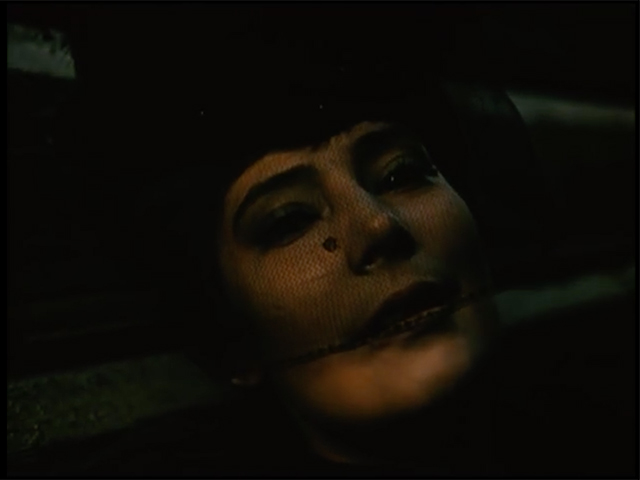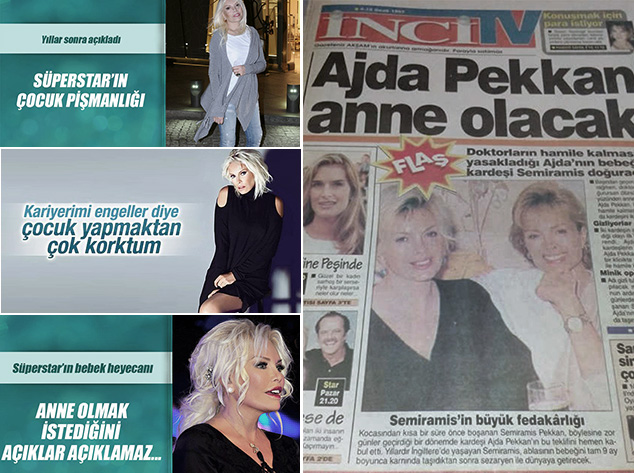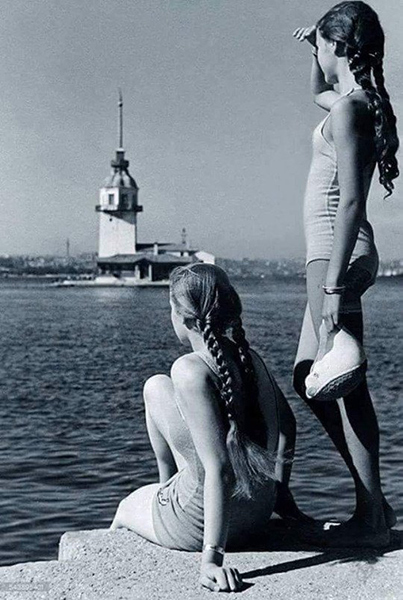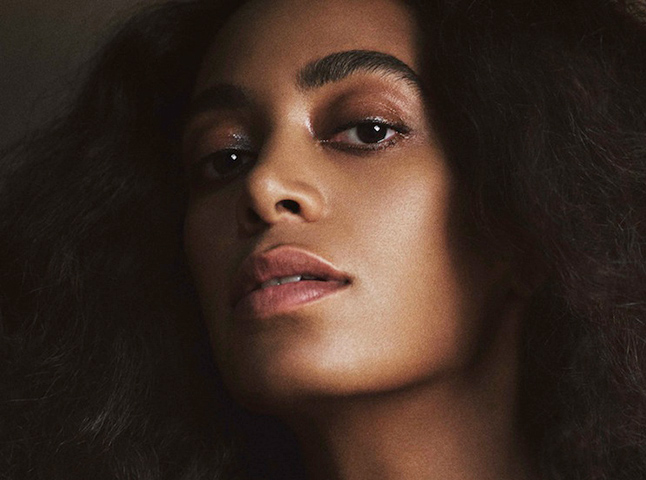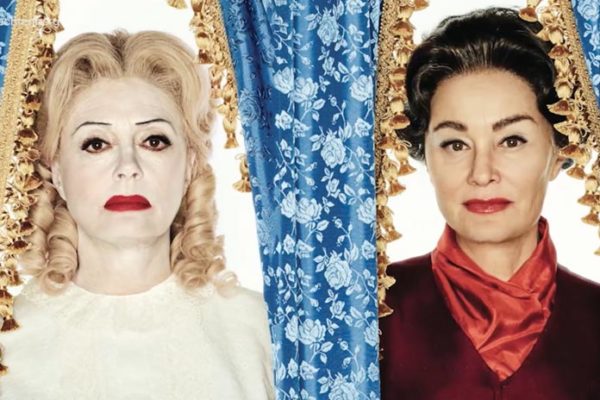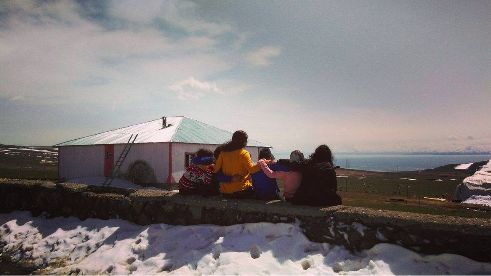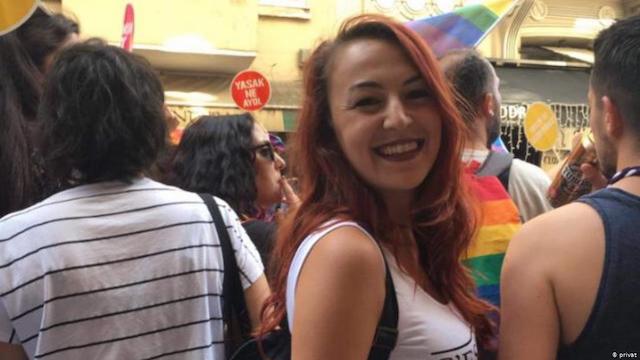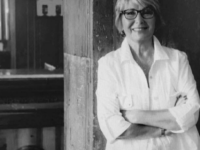I thought Selin’s mother’s explanation of Anna Karenina was flawless.
It’s totally right, right? That is my mother’s real explanation of Anna Karenina.
Maybe it’s because I also don’t like Levin that much. Although, in her explanation, she doesn’t really hate Levin. On the contrary, she thinks Kitty made the right choice.
Yeah, she thinks Kitty made the right choice and married this guy who’s kind of a pain in the ass and who doesn’t really like her, and who’s never going to give her the kind of love she really wants. But that’s the happier life.
And in the novel, Selin doesn’t sound too happy with that explanation. It’s as if she’s describing it as “ugh that’s what my mom thinks.”
That’s what my mom said! My mom read that and she was offended. I didn’t mean it that way. That’s her true interpretation and I actually first wrote about it in The Possessed. And I wanted to have it here too and then I felt bad about repeating myself. My mom said “In the Possessed you made me sound smart and in The Idiot I sound like a dummy who doesn’t understand Anna Karenina.”
So why did Anna have to die? You don’t have to answer that.
I don’t feel ready to answer that.
Let’s go back to Levin.
Yeah, Levin. In the first drafts that Tolstoy wrote of Anna Karenina, there was no Levin. He wrote the book as a response to an adultery story called Lady of the Camellias that all of the intellectuals in Russia were reading.
And the first draft he wrote wasn’t called Anna Karenina. It was called something like Aferin Kızım, or Aferin Dudu when you translate it into Turkish. Anna comes out in the first scene and she’s wearing this yellow dress with black trim, which is something Anna Karenina would never wear. The thing is, these first drafts weren’t good. I’ve kind of looked at those drafts but this is based more on critic Boris Eikhenbaum’s book Tolstoi in the Seventies. Eikhenbaum says that the draft where Anna becomes a sympathetic, magnetic, charismatic person we all care about is the draft where Levin becomes a character, and where it becomes a double novel with the Levin-Kitty plot and the Anna-Vronsky plot.
Eikhenbaum points out that Levin’s experience is very close to Tolstoy’s experience, and Kitty is very similar to Tolstoy’s wife. There is a tenuous family relationship between Anna and Levin. They don’t meet until the very end, and when they meet, it’s this electric scene. It’s a little before she kills herself.
What I thought and wrote in my dissertation is that when he tried to just write about Anna, and he was like “I’m going to write a version of this French adultery novel”, it was too far from his experience, it was too abstract and he didn’t have the sympathy for her that he needed. It was really by putting himself in the story and having his own experience in some kind of contact with her experience that…
By himself, you mean Levin.
Yeah, I think Levin is just Tolstoy. He’s annoying like Tolstoy is annoying, and I think Tolstoy knew that he was annoying. He was this kind of clumsy, idealistic guy. You meet Levin before you meet Anna, and then Anna dies and then there’s a whole Book 8 that’s all about Levin. Critics at the time couldn’t understand this. They said this book should be called Pava, after Levin’s cow, not Anna Karenina.
I think the reason for that is fiction is kind of like a dream version of your everyday life. The materials are your everyday life but it’s gone through some slight change. I think there’s a way in which the Anna story is a dream that the Levin character has. In a way he’s kind of thought of it all.
So yeah, Levin may be kind of annoying. But we need him there.
You mentioned in your talk today that during your academic life whenever someone pointed out the similarities between Russia and Turkey, between Peter the Great and Atatürk, struggle for secularism in both countries, and implied that your interest in Russian literature may have something to do with that, you dismissed these suggestions as shallow. You said you were re-considering that position these days.
When I try to remember how important Turkish culture was for me… In some way it was definitely a big deal. We went back every summer. But in another way, it was not. My mother was like, “we’re citizens of the world, we can read what we want, we can study what we want” and that’s related to not having a religion. I thought all of these things were going to end, nationalism was going to end, racism and all kinds of bigotry were going to end, and that these things were not going to matter any more.
And then things went in a completely different direction. I realized that that feeling I had of being post-historical and post-feminist and post-nationalist was actually very historically conditioned. The nationalism that my parents’ generation believed in, well it was a paradox — it was both “Turkishness! Turkishness!” but at the same time, there was a kind of post-nationalistic message to a certain period of Turkish nationalism that I think was related to secularism. That made me rethink my relationship to Russian literature, which I always thought of as ahistorical and almost non-national. Even though Russian literature is clearly a national literature. It had everything to do with nation.
The thing that was so moving to me about Russian literature is that it feels so universal and so particular at the same time. Which, I think, is key to the novel. The novel and the nation are in a really interesting relationship to each other.
What are you working on now?
I’m working on two books now. One is a continuation of The Idiot, the other is a book about Turkey and the novel.
I started working on the second one after the coup attempt actually. My mother was in Ankara at the time. The Istanbul airport attack happened a month before that. I was supposed to meet her in Turkey but I just didn’t go.
I was partly thinking about the coup in 1980, particularly what my parents had told me about it, and how different that was compared to what I heard about it when I went back to Turkey in the 2000s. I also started reading Kafamda Bir Tuhaflık by Orhan Pamuk, and I was actually very moved by it. It’s about this guy from the village who comes to Istanbul. At first I didn’t want to read it because I thought it was going to be “oh, Mevlüt had this great, masculine, free life in the village and then he came to the city, and was alienated.” But it’s not like that. He’s this nice, curious guy who loves Istanbul. And he votes for Erdoğan. The book made me able to read about the experiences of someone who’s on the other side of this cultural divide without feeling hurt.
Also, Brexit had just happened and Trump got the Republican nomination. All of these things happened and none of the analysts had predicted it. It’s an eerie feeling when all this data and statistics get it wrong. And there’s a kind of truth in the novel that you can’t get in data, because truth consists of some intersection of what everyone wants. Like this guy Mevlüt, he makes lots of political actions but none of them are because of his deep ideological consciousness. He’s trying to impress a girl, his cousin is doing something, his daughter goes to a school somewhere…
It’s kind of like War and Peace. You think wars are won because of generals, but actually it’s because hundreds of thousands of Russian people got up that day and picked up a gun and went to this place — all for their own reasons. The novel is the only form that’s trying to explain what it feels like to be one of those people, acting for their personal reasons, and making things happen in the world.

